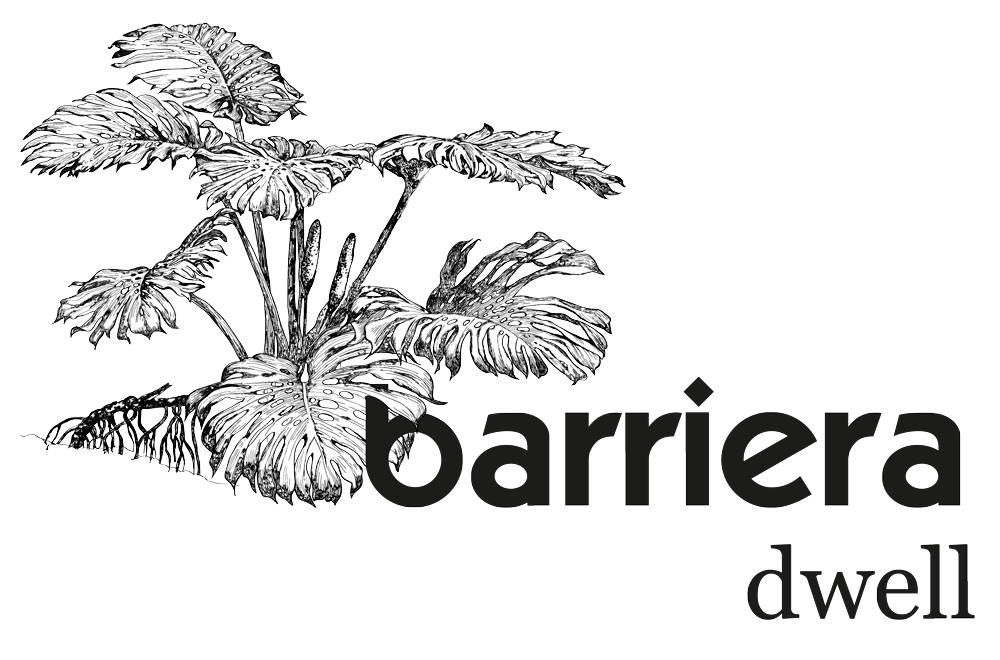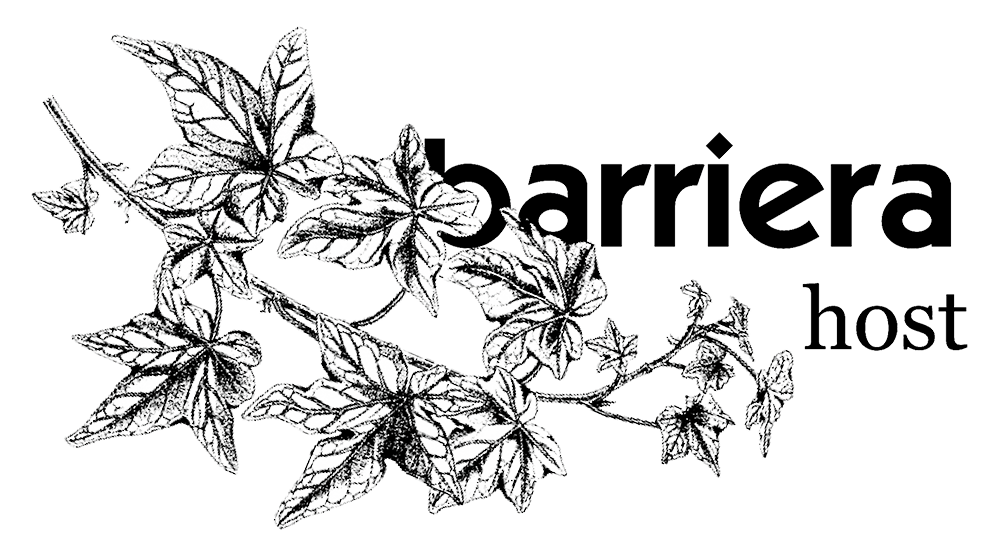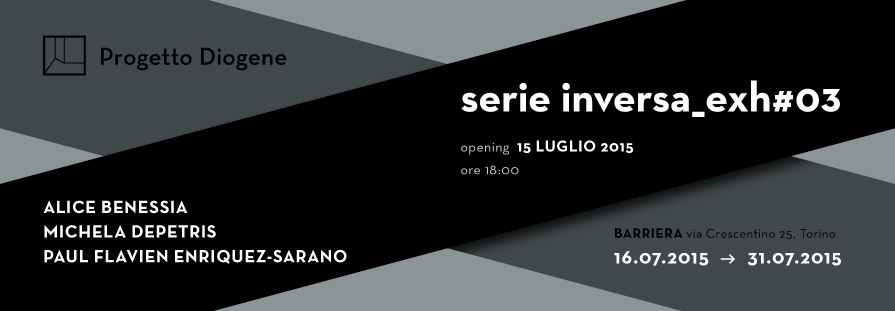Serie Inversa_exh#03
Alice Benessia, Michela Depetris, Paul-Flavien Enriquez-Sarano
Curated by Diogene
16.07.2015 — 31.07.2015
The collective exh#3 marks the closing of the annual cycle of Serie Inversa, a program of Progetto Diogene for carrying out a survey to discover the paths of artistic research currently going on in Piedmont, but outside the commercial or institutional circuits. The artists selected for the project’s third edition, which will be hosted in the spaces of Barriera are Alice Benessia, Michela Depetris and Paul-Flavien Enriquez-Sarano.
Alice Benessia uses the language of analog photography to investigate the existential theme of the relationship between human beings and the rest of the living (and non-living) things that surround them, accompany them, and sustain them in life on the planet. With her installation Animale di terra, Benessia attempts to formalize a controversial relationship between mankind and nature, where the individual and the collectivity show points of contact and complementarity. A series of black and white analogue photographs, hand printed by the artist on fiber-based paper, are exhibited without any protection on her work table, which is handcrafted and based on a design developed by the artist herself by using her own body measurements. This is an approach that leads back to primordial issues such as the personality and vulnerability of an individual. The iconic power of the photographs is accompanied by written texts and 3 large prints (always b&w analog photos printed by the artist), that further strengthen the dichotomy between pathos and logos.
Michela Depetris reflects on the relationship between intimacy, looking, and identity. The first topic is both a central theme and the working method used by the artist. In fact, all of her works start from the idea of performative action understood as a generative process of an activation of the reflection and as a possibility of shifting the ordinary. The relationship with the other is also substantial: by establishing partnerships and relationships, Depetris investigates shared processes and possible mutual influences, interpreting the places where they occur as possible spaces of dialogue. With the appropriation of reality through subjective experience, she tries to restore a possible vision that is sensitive and not manipulated, uncensored, open, and intimate but not self-referential. She has recently begun exploring the study of identity and looking, through videos, photography, audio installations, and performance art, moving in a hybrid environment that combines reportage, poetic composition, and action.
Paul Flavien Enriquez-Sarano draws upon his interest in cars and artificial systems, a personal stimulus, sometimes objective and sometimes wary, which derives from his studies in computer engineering. The artist reflects not only on the importance the car has from a social point of view, but also on the role of the intermediary that is embodied in his works in relation to the public and the artist’s inner discourse. Paul Flavien extends this reflection to automatism linked to the physical and biographical fact through which the notion of pleasure as a revolutionary experience and a cognitive or idea-motor flow intervenes in a unique way. This research has led him to imagine creation devices inspired by the mechanical systems, relational installations that call into question the issues of consciousness and philosophy of mind, and at the same time casting a look poetic on one’s identity and existence, sometimes representing them in ways that are absurd and ironic at times, rather than disquieting or catastrophic.










